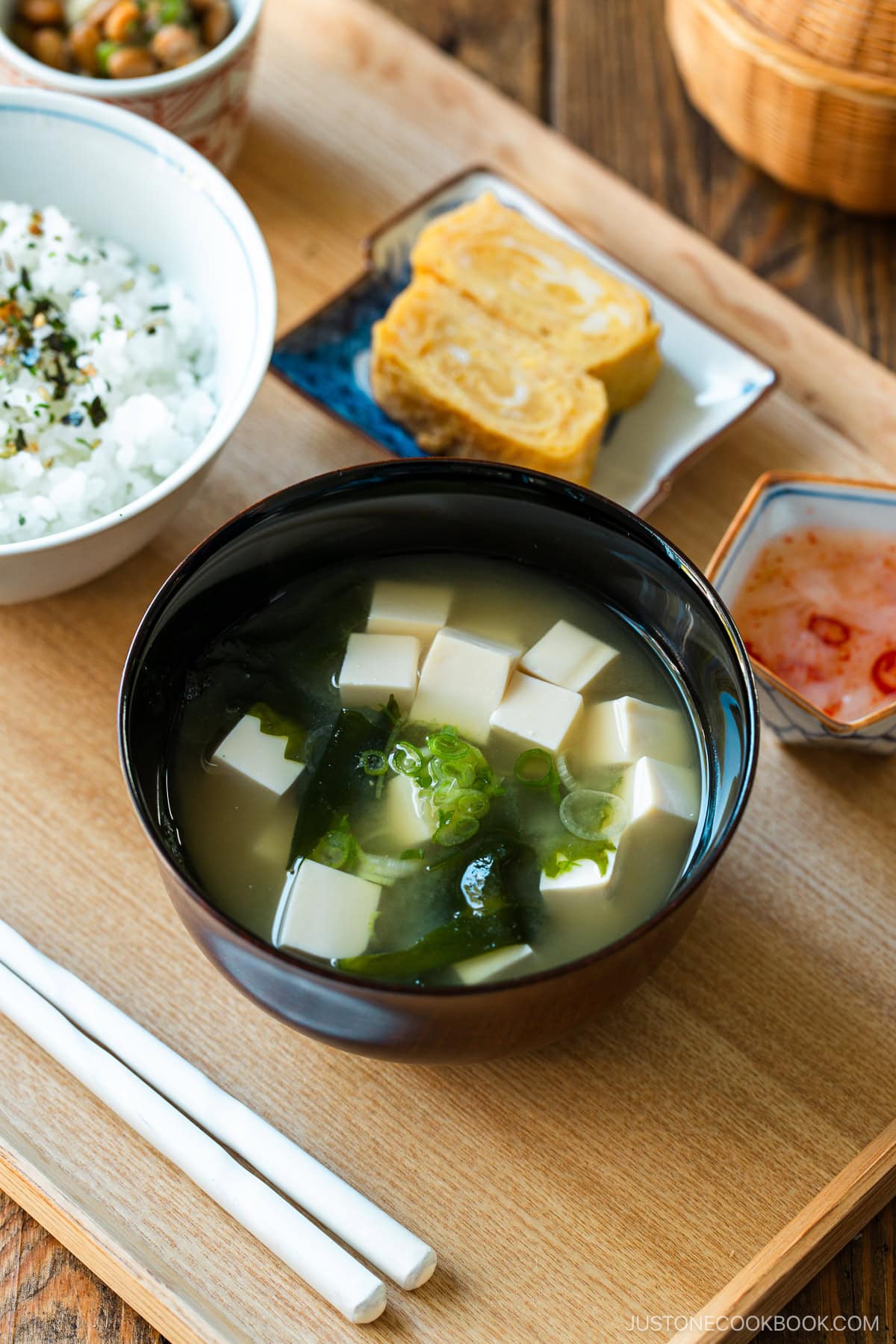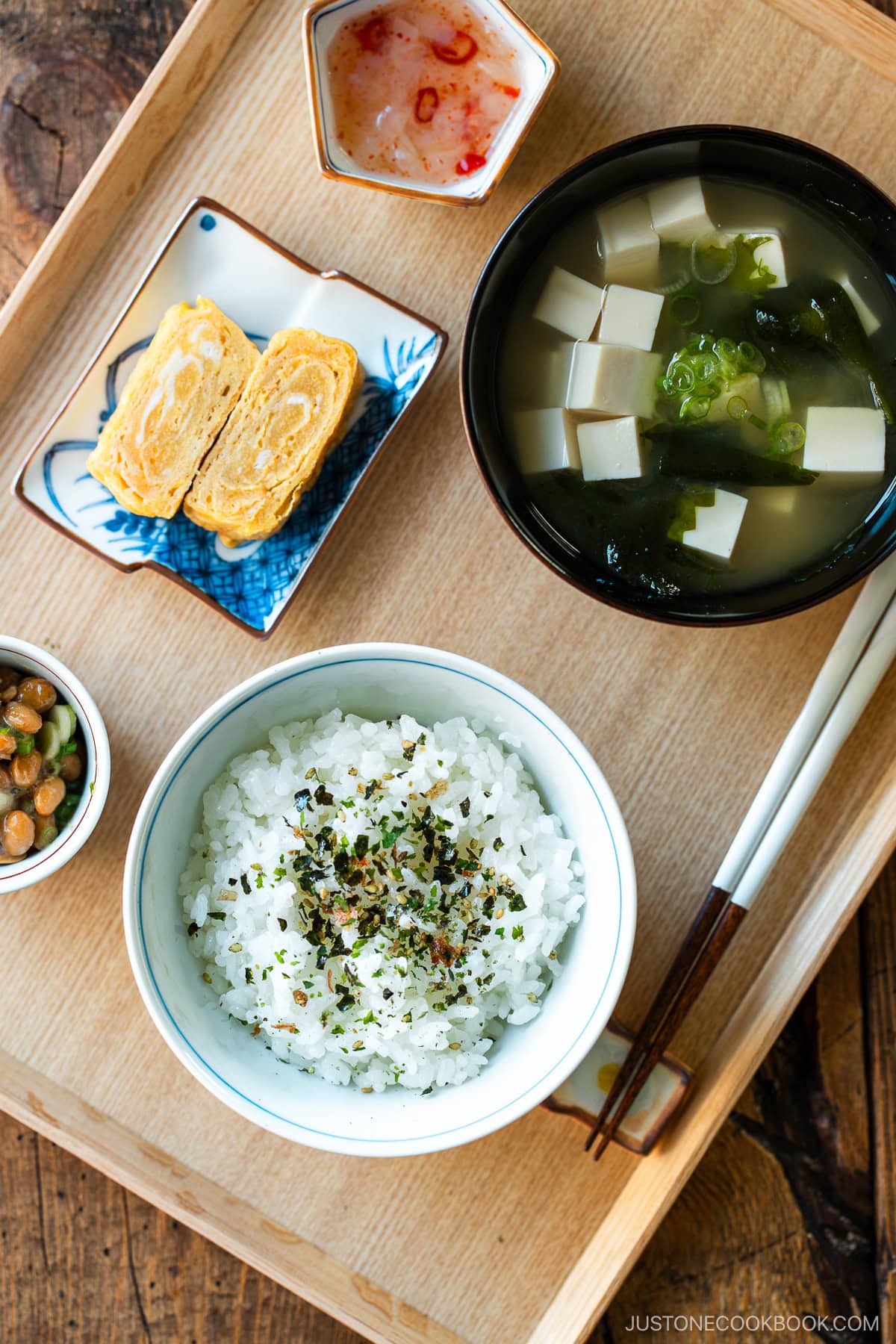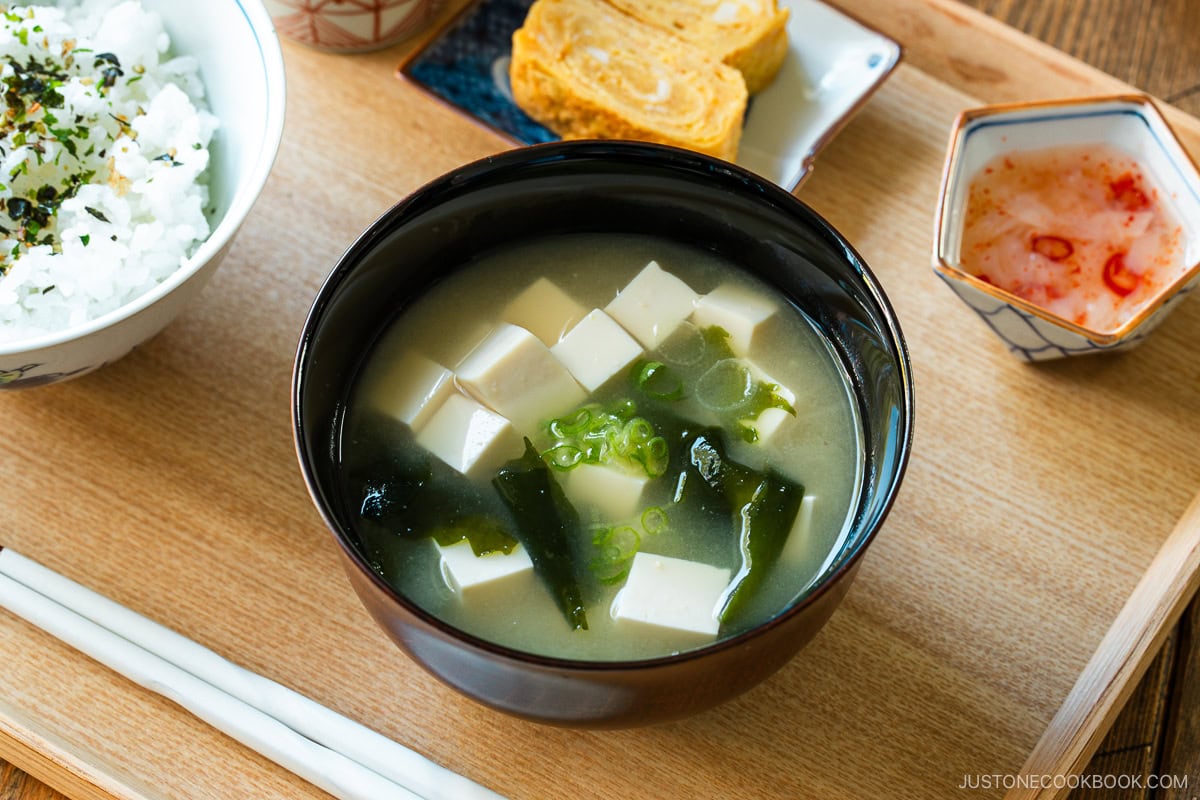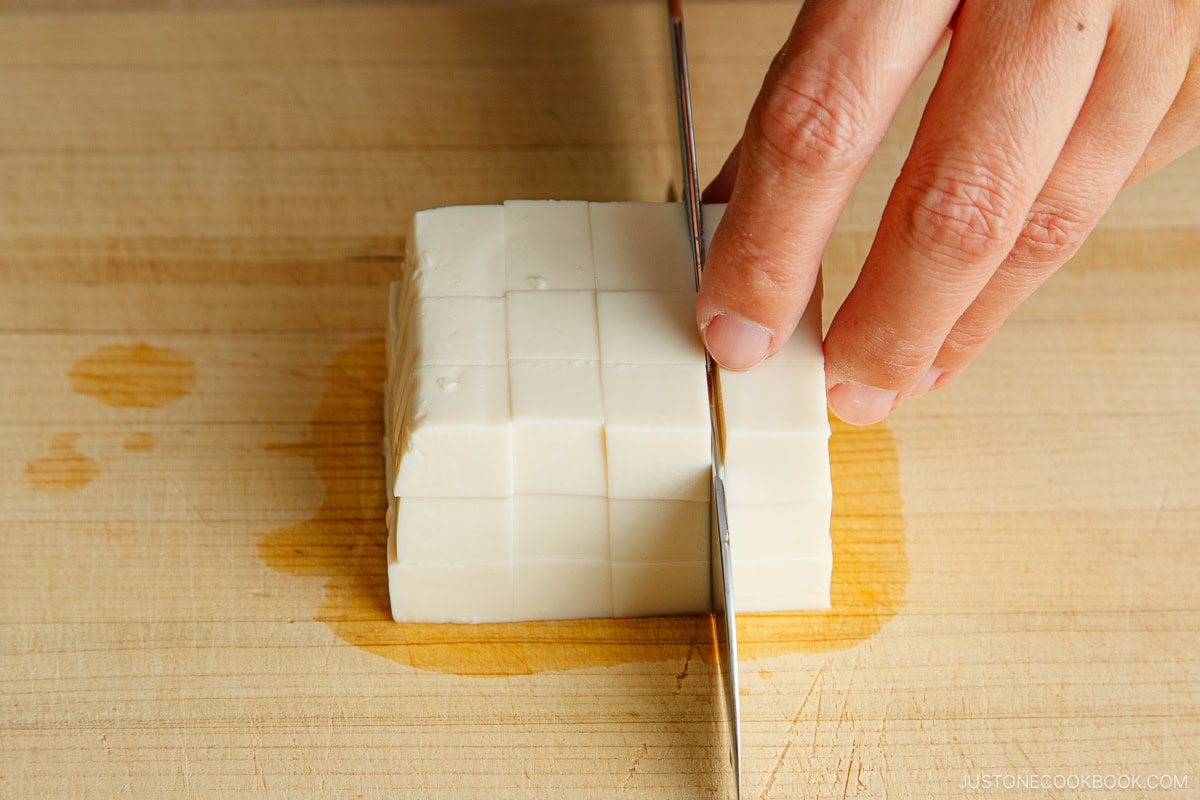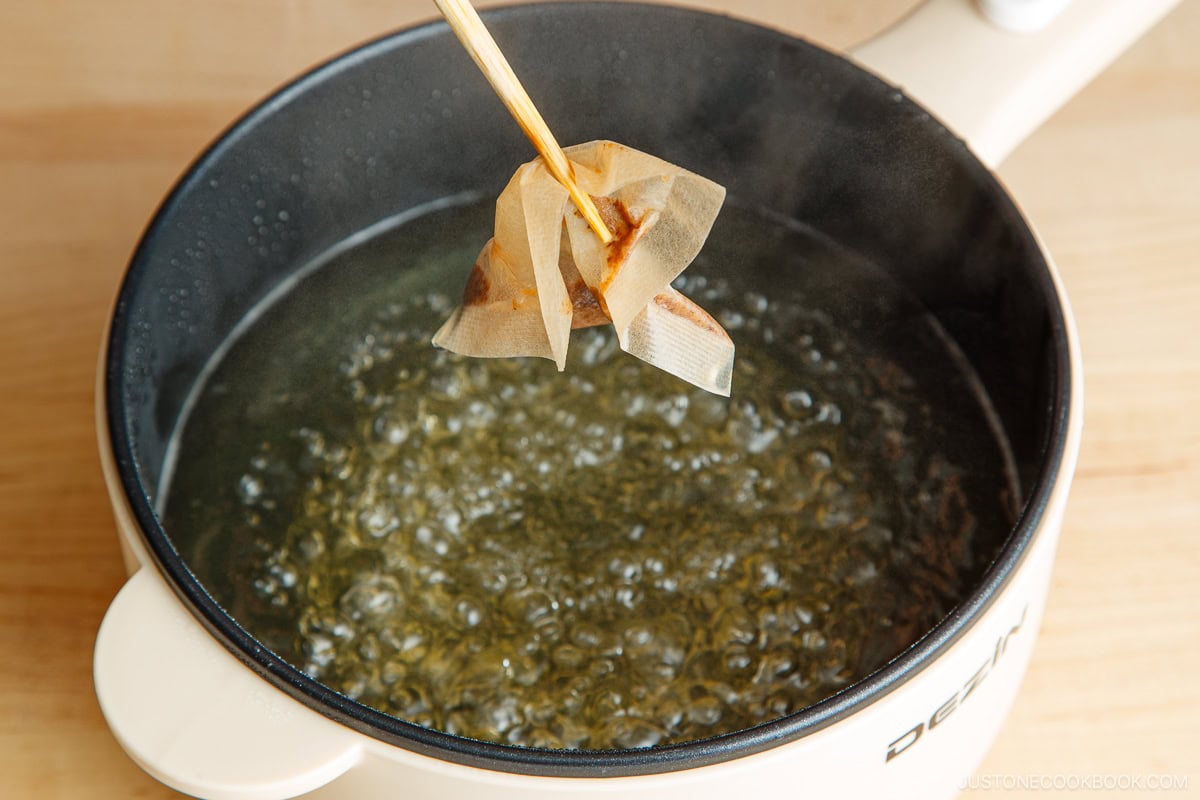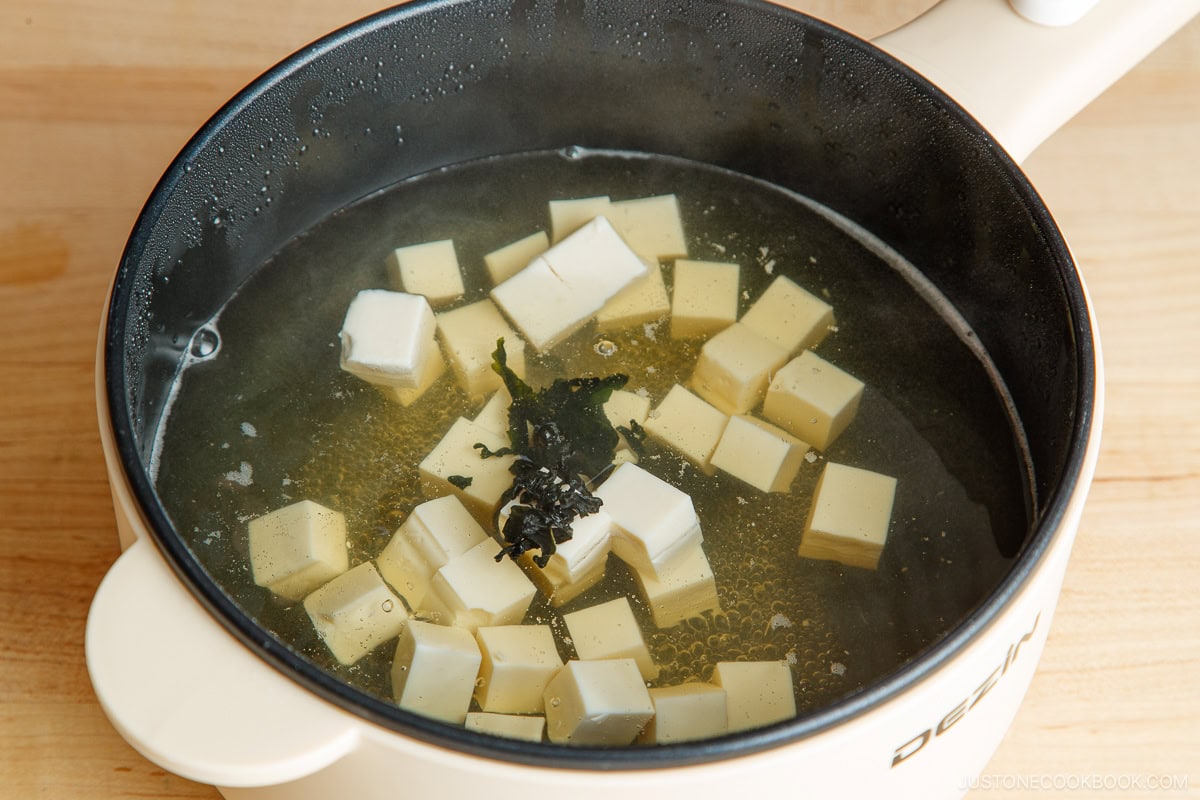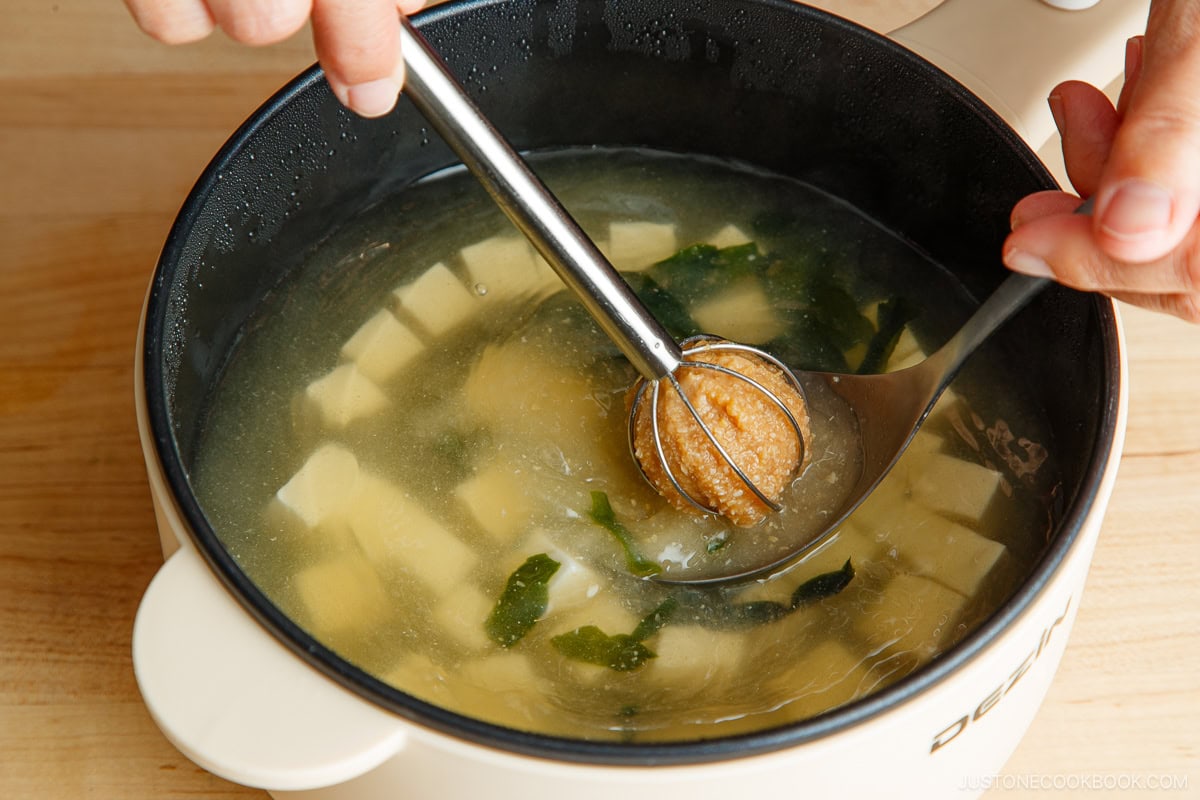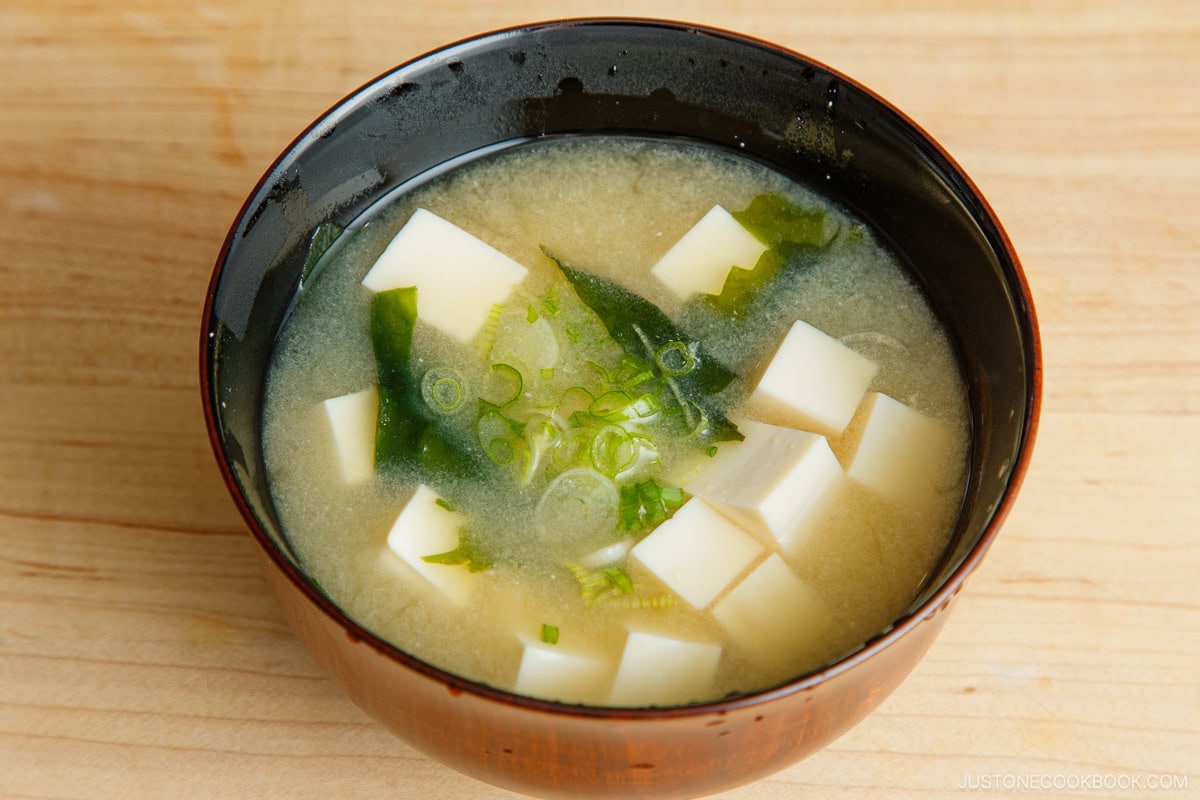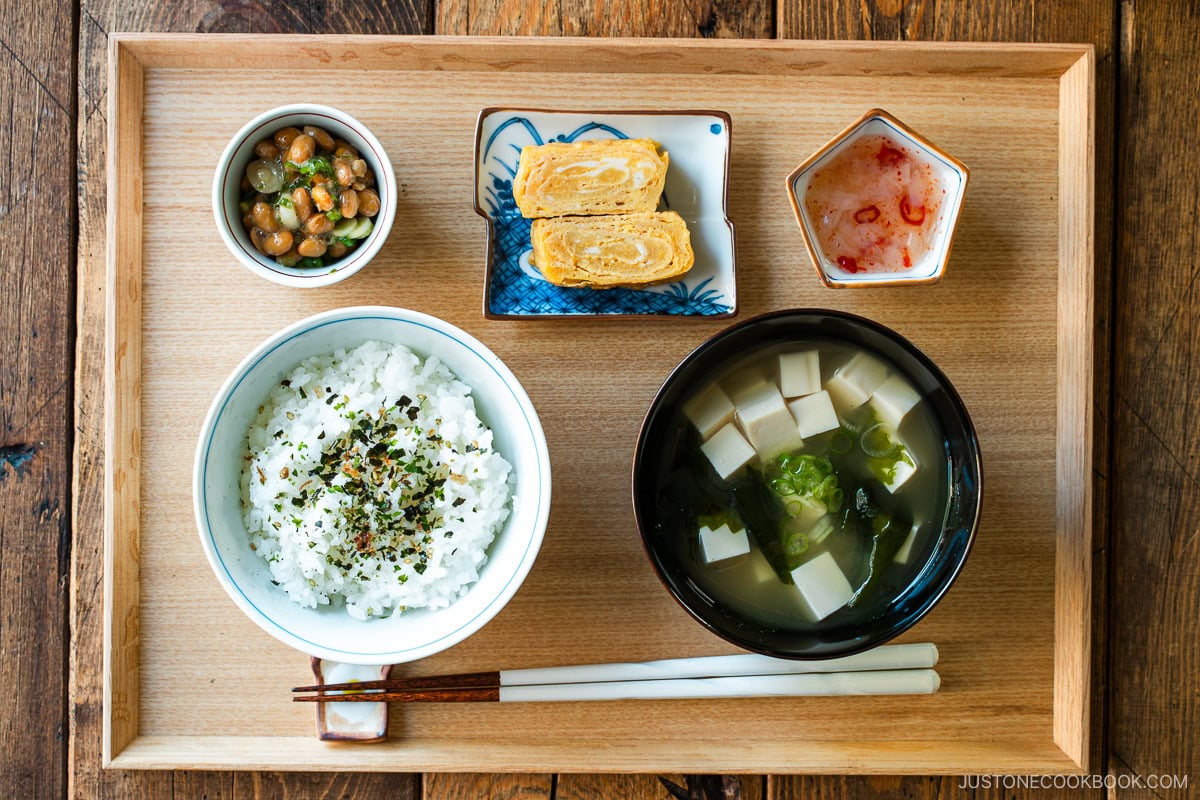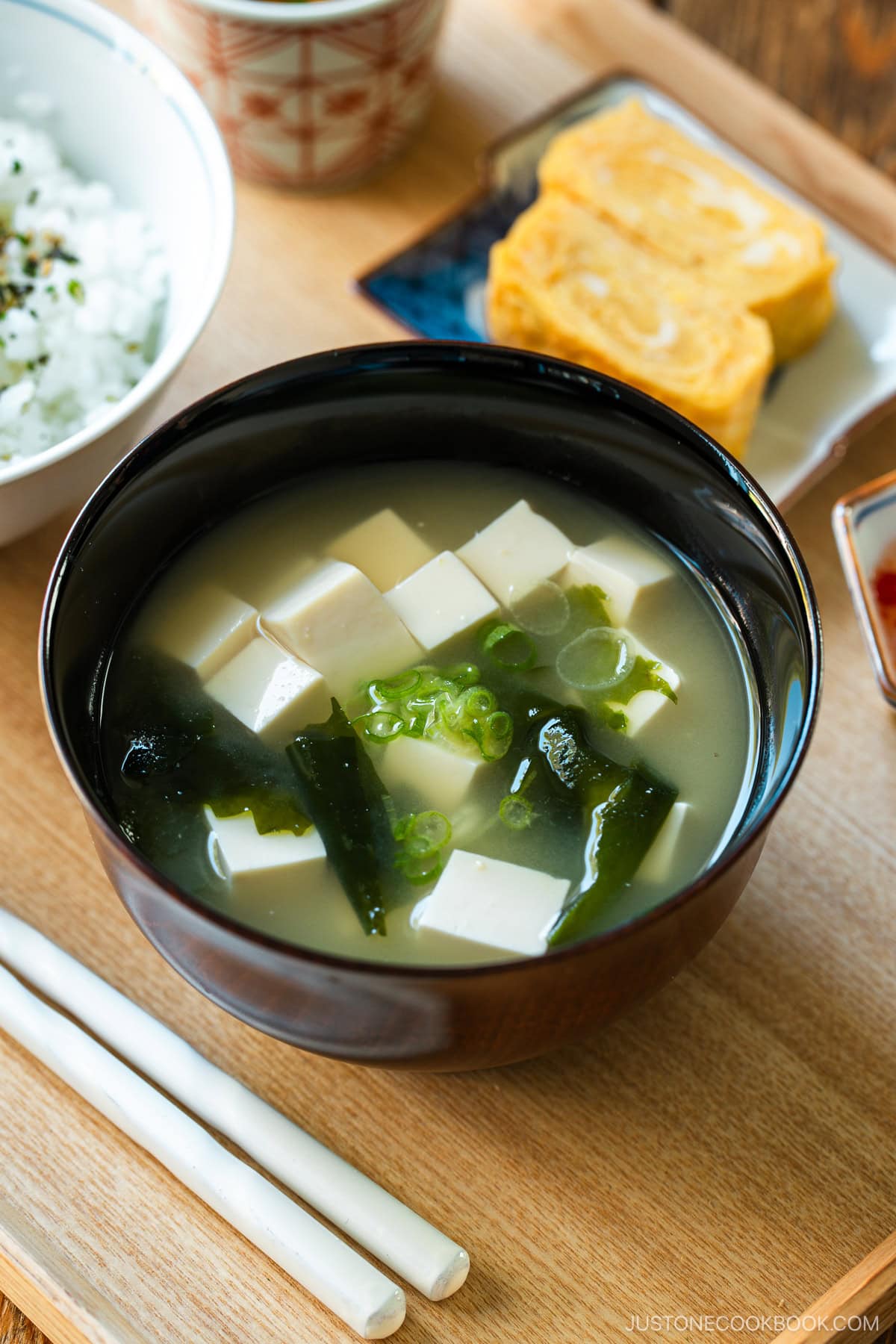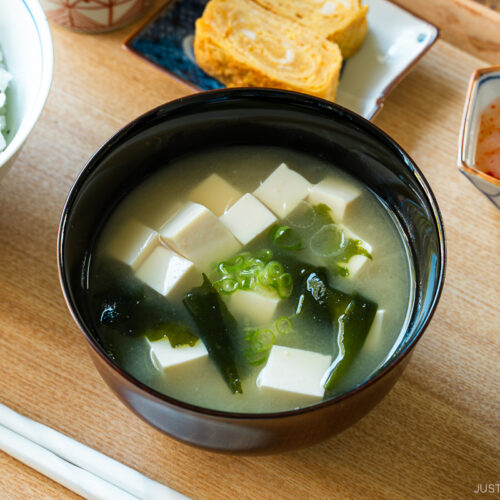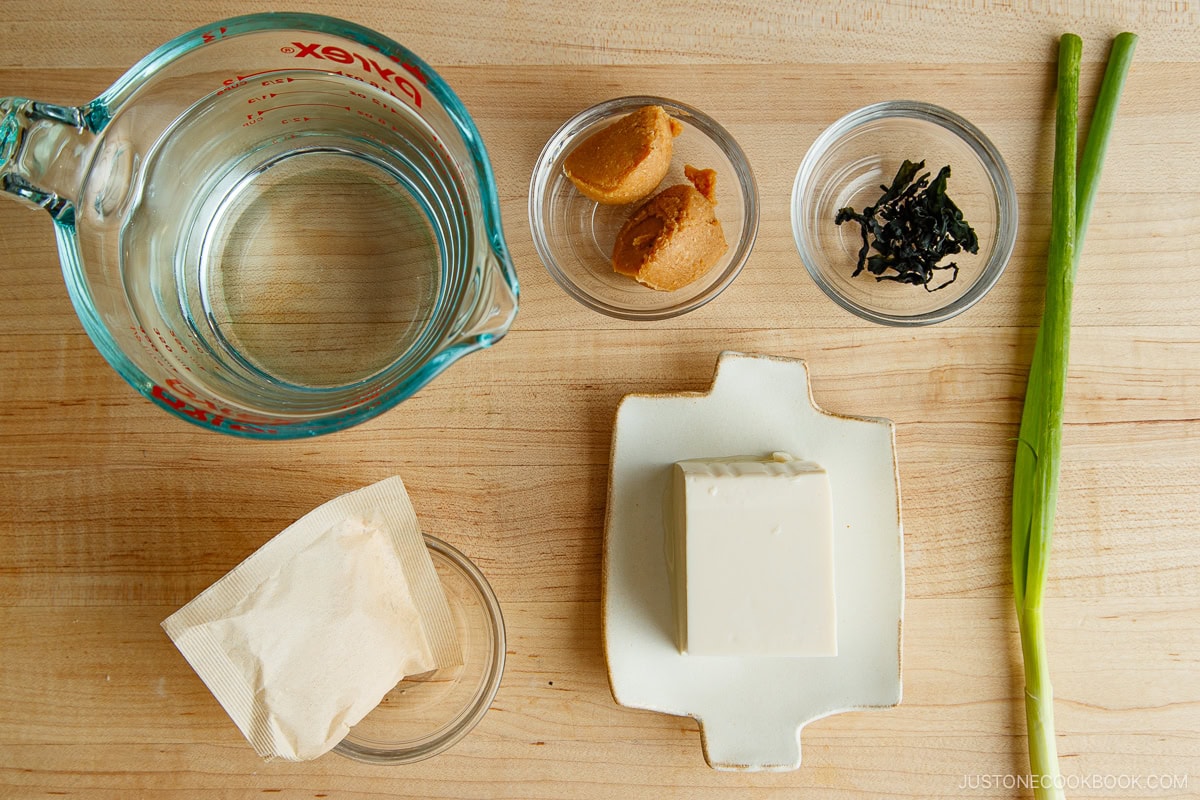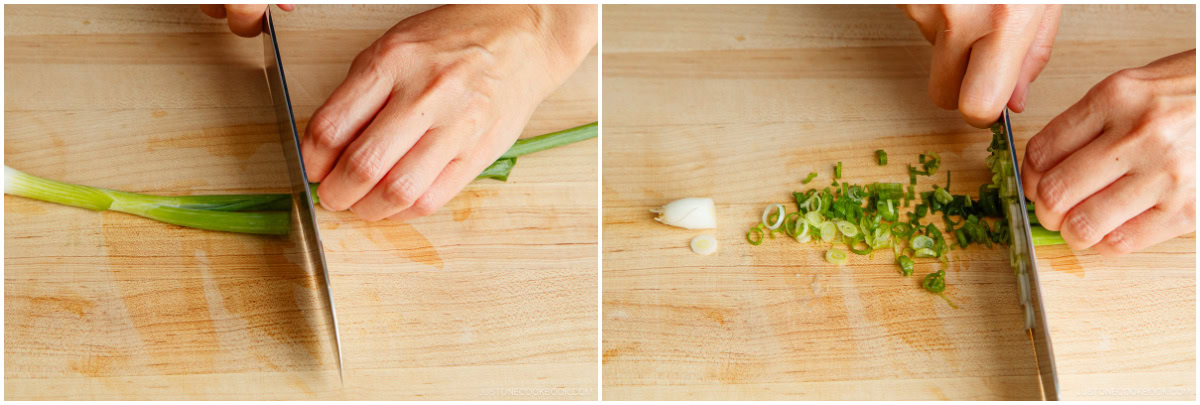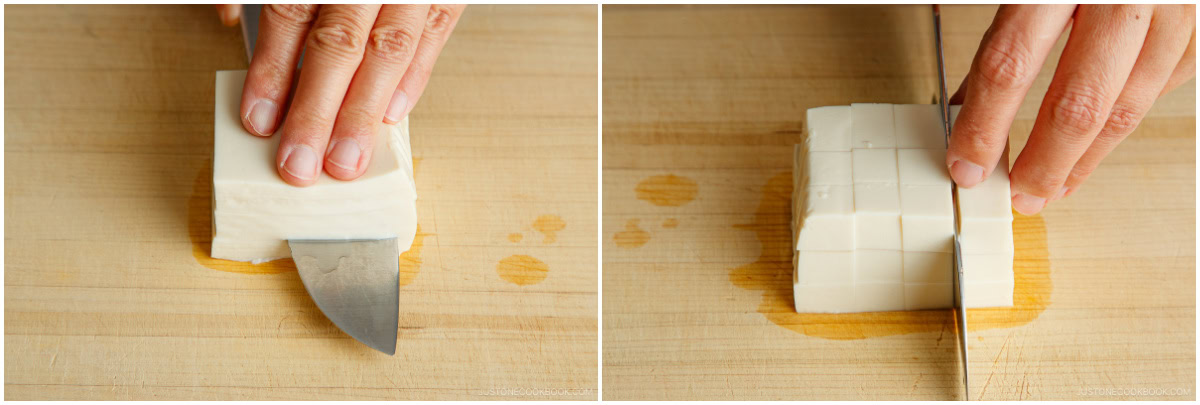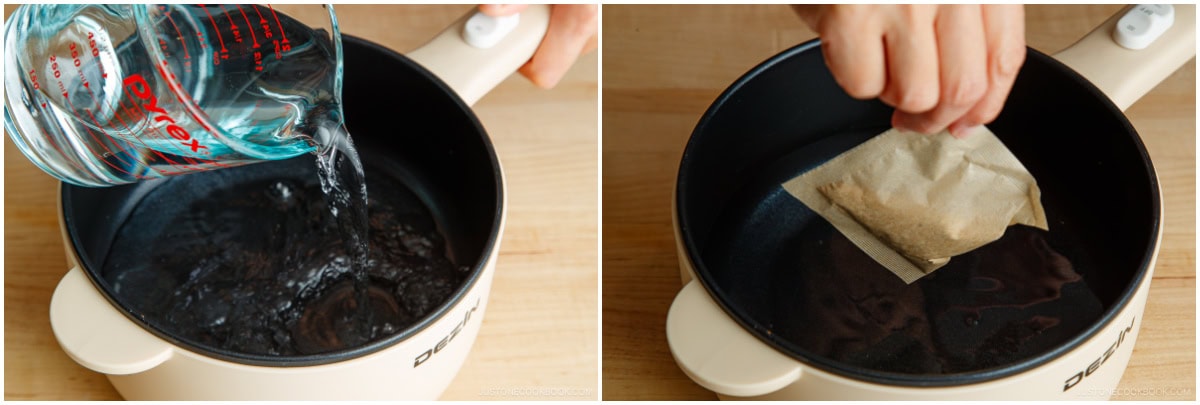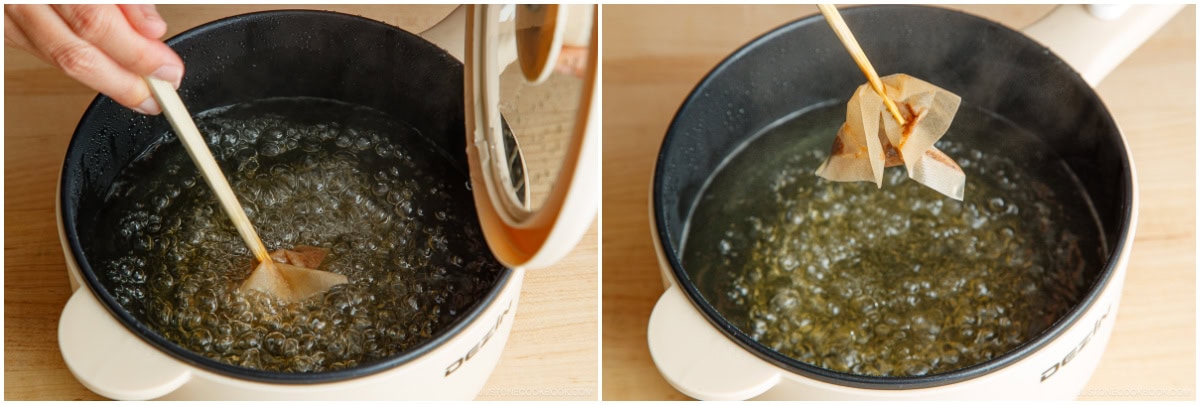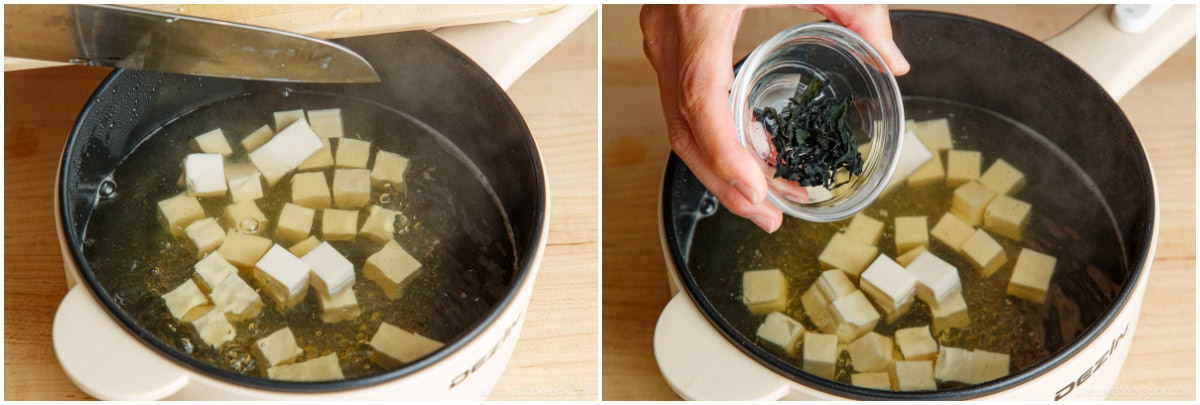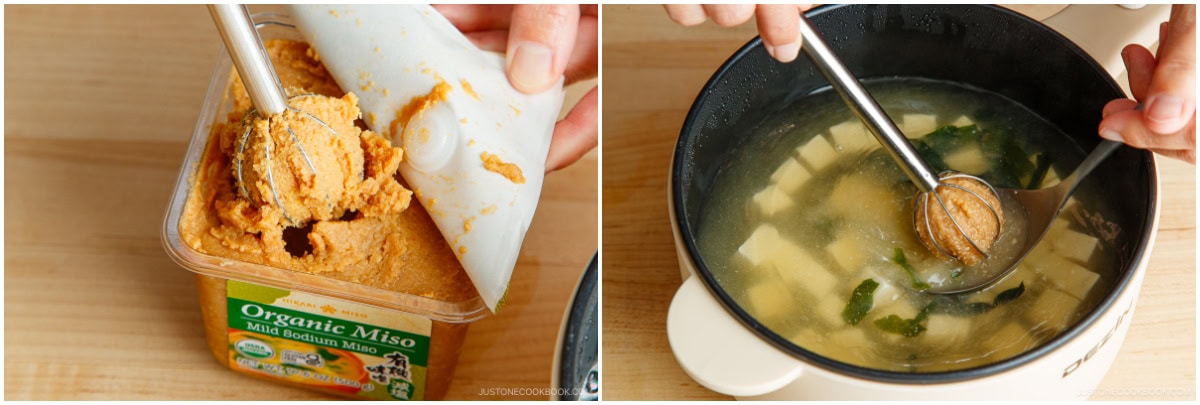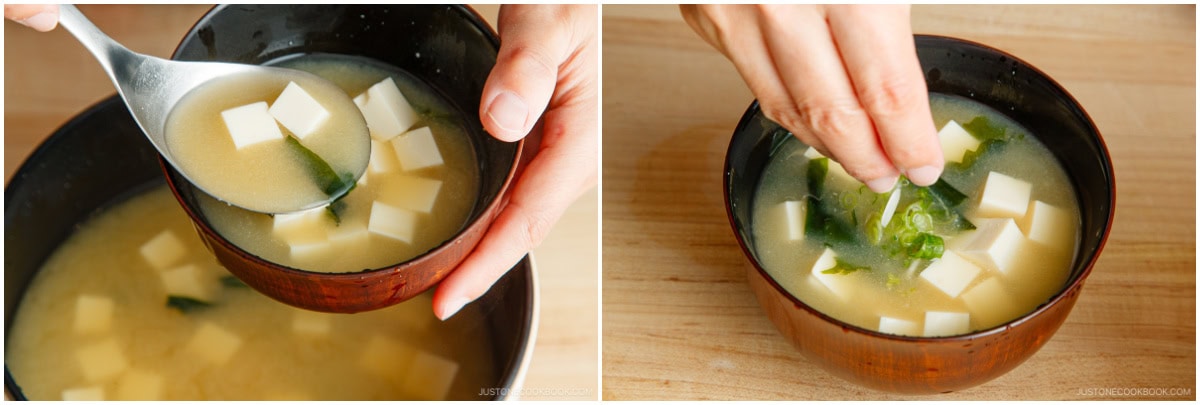Learning how to make miso soup properly is a basic skill for all Japanese home cooks. For a detailed guide on miso soup, I recommend reading my comprehensive Miso Soup post. It is one of the most important recipes I’ve shared on Just One Cookbook. If you love miso flavor, try my Miso Ramen, Miso Salmon, and Miso Glazed Eggplant next!
Why This Recipe Works
This recipe is developed specifically for college students or anyone with an electric pot. By following the four key points below, you can make an excellent bowl of miso soup whenever you’re craving something comforting. Once you try this homemade recipe, you’ll never look back. It tastes so much better than what you get at restaurants!
Ingredients for Miso Soup
Find the printable recipe with measurements below.
Substitutions
Dashi packet: As I mentioned, using a dashi packet is the most convenient way to make dashi, producing a much more flavorful soup stock than dashi powder. However, if you can’t get the packet, you can use the powder or make dashi from scratch, which takes about 20 minutes.
How to Make Miso Soup
Preparation
Step 1 – Prepare the ingredients. Thinly slice the green onions and cut the tofu into small cubes. Step 2 – Make dashi. Add water and the dashi packet in a pot. Cover and bring it to a simmer. Once boiling, let it simmer for 2-3 minutes, shaking the packet a few times. Once finished, discard the packet. If you’re using dashi powder, add the powder to boiling water. Now dashi is ready to use.
Cook
Step 3 – Make miso soup. Add the tofu and wakame seaweed. The tofu just needs to warm up. Step 4 – Add the miso paste. Let the chunk of miso dissolve completely in the ladle. Don’t boil miso soup. Step 5 – Serve. Add the green onions and serve.
Variations and Customizations
You’re probably familiar with the classic tofu and wakame miso soup; however, it is easily customizable!
Use seasonal produce. This is the Japanese way when the ingredients are at their freshest. Here are some examples: tomatoes in the summer (Tomato and Tofu Miso Soup) asparagus in the spring (Bacon Asparagus Miso Soup) kabocha squash in the fall (Kabocha Miso Soup) cabbage in the winter (Cabbage and Onsen Tamago Miso Soup)
Use ingredients you have on hand! For inspiration, refer to this list of Just One Cookbook miso soup recipes as your guide.
What to Serve with Miso Soup
As a quick meal – Miso soup makes a satisfying accompaniment to fried rice, rice bowls, and noodle dishes! As an ichiju sansai meal – For the Japanese “One Soup Three Dishes” style meal, I served miso soup with steamed rice, natto (fermented soybean), 3-Ingredient Tamagoyaki (Japanese rolled omelette), and a scallop side dish from the Japanese grocery store. All my tableware is from my shop, JOC Goods!
Storage and Reheating Tips
It’s best to consume miso soup immediately, as it will lose its aroma and flavor over time. However, if you have leftovers, here are instructions on how to store them. To store: Once miso soup is cooled to room temperature, store it in an airtight container and refrigerate immediately for up to 2 days. To freeze: I don’t recommend freezing miso soup because the flavor deteriorates quickly. But you can freeze it for up to 1-2 weeks. If you do, remove the tofu, as its texture changes when frozen. To reheat: For the best results, bring the soup to a simmer (190°F/88°C) and NEVER boil it. Boiling will cause the miso soup to lose its flavor and aroma. Also, avoid overcooking the tofu, as it will change its texture and flavor.
More 10-Minute Easy Recipes
To learn how to cook simple, fast, and affordable meals using a versatile electric pot, check out some of our 10-Minute College Meal Series below:
10-Minute Japanese Curry 10-Minute Oyakodon
